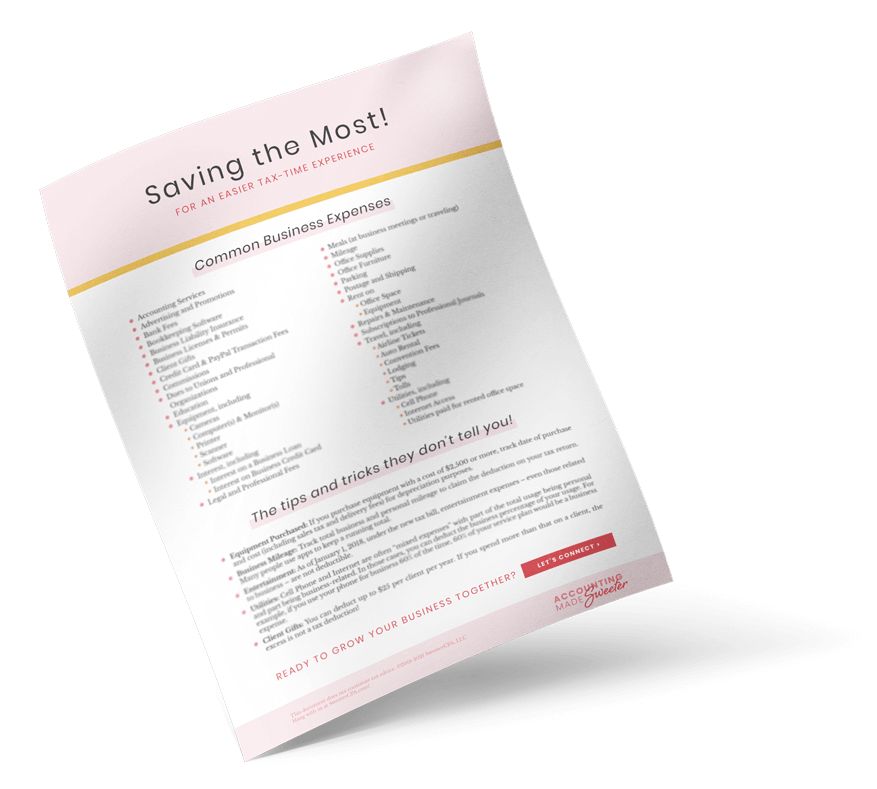Now that your readership has grown, you may encounter some new situations as you maintain your blog.
Saving for Tax Season
As you begin earning income from your blog, you should be setting aside 30% for tax purposes. This may result in you saving more than you need, but it’s always better to be prepared than to owe Uncle Sam for unpaid taxes! Some people find it helpful to set up a business savings account and move 30% from checking to savings each month so the tax money is set aside and ready for April 15th.
Estimated Taxes
As a self-employed individual, you are required to pay estimated taxes on the amounts you earn. These amounts are due quarterly and represent an estimate of the taxes owed on the income you will earn for the year.
Forms 1099
If you hire a contractor to help with an element of your blog – say a social media consultant to help you with your online strategy or a brand consultant to make your site look sharp – you may have certain tax responsibilities.
If you pay any contractor (someone who is not your employee) $600 or more over the course of the year, you are required to issue a Form 1099 to them and the IRS to report the income. The Form is due to the individual by January 31st of the year following the year in which they did work (e.g., Forms 1099 for work in 2012 should have been issued by January 31, 2013). The Forms are due to the IRS on February 28th.
This Form is largely informational and just lets the IRS know to expect to see that income on the contractor’s tax return for the year. It’s a good practice to issue Forms W-9 to anyone with anyone who does work for your blog so you will have their personal information (name, social security number, and address) ready for when you need to send Forms 1099.
You may also be responsible for issuing Forms 1099 to anyone who wins a contest or giveaway on your blog where the prize has a market value of $600 or more. If you are working with a sponsor, make sure you discuss who will issue the Form 1099 before you host the giveaway so you are not caught unaware.
Work with an Accountant
If any of the information above was confusing, take heart – there are professionals out there who’d love to help you get your business in order. As your blog grows, you may find it easier to let an accountant focus on the finances so you can devote your time and energy to what you do best – creating content for your blog.
In addition to saving you time, and accountant can make sure you are getting all the deductions you deserve. In fact, the fees you pay to a tax professional are deductible business expenses! Find someone you feel comfortable working with so you can ask all the questions you may have as your blog continues to grow.



